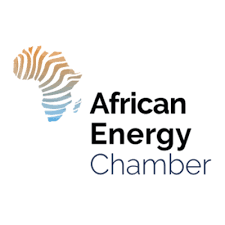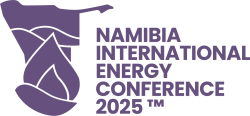 – As demand for clean fuels in Africa grows
– As demand for clean fuels in Africa grows
Cape Town, South Africa — Africa’s estimated green hydrogen production capacity is expected to grow to 50 million tons per year by 2035. The continent’s abundant renewable energy resources, attractive fiscal policies and development potential make it a highly attractive market, and with African energy demand projected to grow two-fold by 2040, investment is projected to increase significantly across the continent.
This year’s African Energy Week (AEW): Invest in African Energy 2024 conference – taking place in Cape Town from November 4-8 – will feature a dedicated hydrogen summit, with panel discussions unpacking the continent’s ongoing projects and future investment opportunities. The summit builds on the rising demand for hydrogen globally to connect partners, address challenges and advance project development in Africa.
AEW: Invest in African Energy is the platform of choice for project operators, financiers, technology providers and government, and has emerged as the official place to sign deals in African energy. Visit www.AECWeek.com for more information about this exciting event.
As global demand for alternative fuels grows – driven by the energy transition -, Africa has emerged as the investment market of choice for many countries worldwide. The EU market, for example, serves as the largest commercial opportunity for hydrogen projects in Africa given the blocs target of importing 10 million tons of green hydrogen from international partners by 2030. Partners from the Middle East and the Americas have shown similar interest in Africa’s green hydrogen potential, and as a result, a slate of projects has kicked off in recent years.
This month, renewable energy company ACWA Power signed a memorandum of understanding (MoU) with the government of Tunisia to advance green hydrogen production in the country. The partnership aims to produce 600,000 tons of green hydrogen annually through a three-phase approach for export to Europe. The initial phase aims to generate 200,000 tons per year to be exported via the SoutH2 Corridor – a planned hydrogen pipeline connecting Tunisia to Italy, Austria and Germany.
Additionally, Mauritania unveiled ambitious plans to produce 12.5 million tons of green hydrogen annually by 2035. In May, transitional energy group Chariot finalized the feasibility study for a 10 GW green hydrogen project in Mauritania – Project Nour. Plans are currently underway to implement a phased development approach for the project, where the initial phase aims to establish 3 GW of renewable capacity, generating up to 1.6 GW of electrolysis capacity to yield 150,000 tons of green hydrogen annually.
Green hydrogen from the project will be used to meet domestic needs as well as international demand, leveraging Mauritania’s proximity to European markets. Other projects in Mauritania include Danish developer GreenCo Energy’s 35 GW Megaton Moon, renewable energy developer CWP Global’s 16-20 GW Aman project and a 10 GW project spearheaded by Egyptian utility company Infinity and energy company Conjuncta.
Meanwhile, poised to become Africa’s first 100% net-zero green community, the Daures Green Hydrogen Village project in Namibia will comprise solar, wind, hydrogen and ammonia production systems and transportation networks. Set to be developed through 2032, the project will provide a pilot proof of concept while eventually targeting large-scale green hydrogen production, exploration and export to regional and global markets.
“Africa stands to become a global green hydrogen hub given the continent’s strategic proximity to high-demand international markets and abundant resources. While several countries across the continent have made great strides towards developing large-scale projects, significant investment opportunities remain. Africa should leverage rising global demand to build green hydrogen projects and related infrastructure, therefore bringing a new energy source to the market,” stated NJ Ayuk, Executive Chairman of the African Energy Chamber.
Stepping into this picture, the summit aims to explore how green hydrogen can achieve climate goals and foster global partnerships while showcasing the significant role that hydrogen will play in the future of African energy. Panel discussions, such as Unleashing the African Hydrogen Revolution and Creating a Sustainable African Hydrogen Value Chain explore the potential of hydrogen as a clean, sustainable energy source and its implications for Africa’s energy landscape. Panelists will discuss scalability, cost effectiveness and hydrogen’s potential as a catalyst for economic growth.



